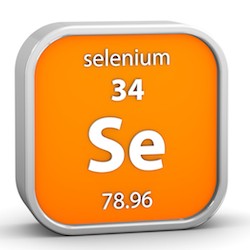Journal of Functional Foods
Xin Zhang, Liangliang Zhang, Kaide Xia, Jie Dai, Jiangtao Huang, Yun Wang, Guiming Zhu, Zuquan Hu, Zhu Zeng, Yi Jia
ABSTRACT:
The effects of selenium on serum cytokines, immune cell composition and spleen proteome in mice are still unclear. In this study, male mice were fed with selenium-containing diets for eight weeks, and serum cytokines were assayed using Luminex liquid suspension chip. The spleen was obtained for histological morphology, immunohistochemistry and proteome sequencing. The results indicated that the spleen index and histological structure of the spleen were reduced and damaged with low and high selenium. Serum cytokines were regulated by selenium. Additionally, compared with medium selenium, there were 180 and 189 differential proteins with high and low selenium, respectively. The differential proteins were mainly associated with metabolic processes, regulation of response to oxidative stress, cell maturation and differentiation, cytokines and receptor binding, and were verified using Western blotting. In conclusion, it was suggested that low and high selenium affected the secretion of cytokines and impaired the immune function of the spleen.
Introduction
As an essential element for humans and animals, selenium plays a biological function in the form of selenoprotein, which is closely related to the development of many diseases, such as diabetes, cardiovascular disease, cancer, immune defence and inflammatory disorders (Avery & Hoffmann, 2018; Fairweather-Tait et al., 2011; Rayman, 2012; Roman et al., 2014; Xia et al., 2021b). It was reported that selenium deficiency in humans is associated with mortality risk from Acquired immune deficiency syndrome (AIDS) (Avery & Hoffmann, 2018) and COVID-19 (Moghaddam et al., 2020). And selenium deficiency can induce kidney (Li et al., 2020), liver (Tang et al., 2020) and spleen (Li et al., 2021)
damage by regulating inflammation in pigs, inducing immune damage to the spleen by heat shock protein (Khoso et al., 2016), cytokine (Khoso et al., 2019), endoplasmic reticulum stress (Zhang et al., 2020a) and NF-κB signalling pathway (Zhang et al., 2021b; Zhang et al., 2020a) in chickens. Selenium supplementation can reduce the level of inflammatory cytokines in sows during gestation (Mou et al., 2020; Mou et al., 2021), inhibit inflammation of mouse mastitis induced by Staphylococcus aureus (Zhang et al., 2019), reduce levels of pro-inflammatory…





